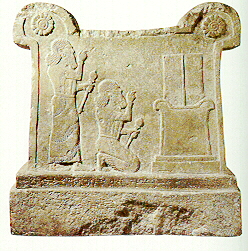I recently read Jaynes’ The Origin of Consciousness in the Breakdown of the Bicameral Mind and really enjoyed it. You need nothing more to recommend it than the following quote from Richard Dawkins.
“It is one of those books that is either complete rubbish or a work of consummate genius, nothing in between! Probably the former, but I’m hedging my bets.”
Wikipedia offers a fine description of bicameralism, Jaynes’ theory of a human consciousness split into two parts. He argues in the book that ancient man may have experienced the world in what we would consider an unconscious state. Instead of an integrated consciousness we take for granted, he suggests until perhaps 2000 BCE, people’s left and right hemispheres communicated indirectly through auditory hallucinations similar to those of schizophrenics.
It’s fascinating how this theory is nearly forty years old, not widely accepted but still hanging in there.
Julian Jaynes Society | Exploring Consciousness and the Bicameral Mind Theory Since 1997
Why are gods and idols ubiquitous throughout the ancient world? What is the relationship of consciousness and language? How is it that oracles came to influence entire civilizations such as Greece? If consciousness arose far back in human evolution, how can it so easily be altered in hypnosis and “possession”? Is schizophrenia a vestige of an earlier mentality? These are just some of the difficult questions addressed by Julian Jaynes’s influential and controversial theory of the origin of subjective consciousness or the “modern mind.”
